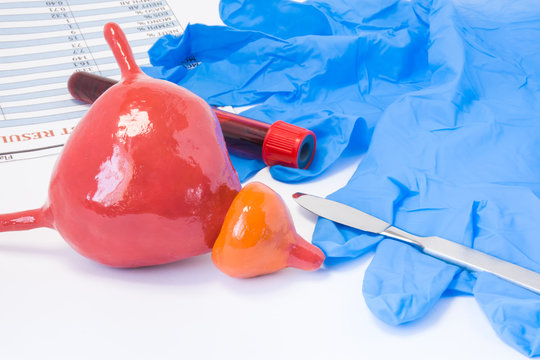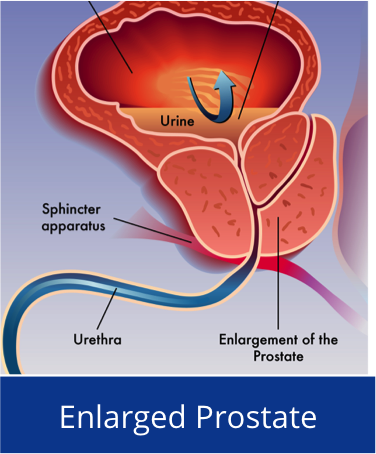Prostate Gland Enlargement Treatment Ayurvedic, often referred to as benign prostatic hyperplasia (BPH), focuses on balancing the body’s doshas and using natural remedies to support prostate health. Here are some common Ayurvedic approaches:
Table of Content
1. Diet and Lifestyle Adjustments:
- Warm, Cooked Foods: Prefer warm, cooked foods over cold, raw foods. This is believed to support digestion and reduce inflammation.
- Hydration: Drink plenty of water throughout the day, but avoid excessive intake right before bedtime.
- Balanced Diet: Incorporate foods that are considered to balance the Vata and Pitta doshas, such as whole grains, fresh vegetables, and lean proteins.
2. Herbal Remedies:
- Saw Palmetto (Serenoa repens): Though not traditionally Ayurvedic, it’s commonly used in Ayurvedic practice for its potential to support prostate health.
- Pumpkin Seeds: Rich in zinc, which is thought to be beneficial for prostate health.
- Gokshura (Tribulus terrestris): Often used to support urinary tract health and reduce symptoms associated with prostate issues.
- Kachnar (Bauhinia variegata): Used in Ayurveda to support glandular health and reduce swelling.
3. Panchakarma Therapies:
- Virechana (Purgation Therapy): Used to cleanse the body of excess toxins that may contribute to prostate issues (Prostate Gland Enlargement Treatment Ayurvedic).
- Basti (Medicated Enema): May be used to cleanse the lower abdomen and support the health of the urinary tract.
4. Yoga and Exercise:
- Yoga: Gentle yoga poses and practices like pranayama (breathing exercises) can help reduce stress and improve circulation. Poses that focus on the lower abdomen, such as the seated forward bend (Paschimottanasana), may be beneficial.
- Regular Exercise: Helps maintain a healthy weight and improve overall wellness, which can positively impact prostate health.

5. Stress Management:
- Meditation and Relaxation Techniques: Stress can impact overall health, so practices like meditation, deep breathing, and mindfulness are encouraged.
6. Avoiding Irritants:
- Spicy and Fried Foods: These can aggravate Pitta dosha and may lead to inflammation.
- Excessive Alcohol and Caffeine: These can irritate the bladder and prostate, potentially worsening symptoms (Prostate Gland Enlargement Treatment Ayurvedic).
7. Medicinal Mixtures:
- Vati Chandraprabha: a conventional mixture that promotes prostate and urinary wellness.
- Varunadi Vati: renowned for its possible advantages in the treatment of prostate health and urinary tract problems.
- Boerhavia diffusa, or punarnava: This herb is used to lessen edema and support renal function.
8. Medicinal Herbs:
- Nasya (Nasal Administration): Applying therapeutic oils or powders through the nasal passages might assist in achieving dosha equilibrium and enhance general health.
- Alkaline Therapy with Kshara: Alkaline materials are used in this treatment to address specific prostate problems. It ought to be administered under the supervision of a qualified professional (Prostate Gland Enlargement Treatment Ayurvedic).
9. Nutritional Guidance:
- Vegetables and Fruits: Add a range of fruits and vegetables, especially leafy greens and berries, which have anti-inflammatory qualities.
- Complete Grains: Include entire grains, such as quinoa and barley, as they are said to balance the vata and pitta doshas.
- Healthy Fats: Use olive oil and ghee, which are good for your general health and can help balance your doshas.
10. Herbs and Foods Particularly:
Turmeric: This spice has anti-inflammatory curcumin, which may help maintain prostate health.
- Withania somnifera, or ashwagandha: It is well-known for its adaptogenic qualities, which boost general vitality and aid in stress management. **Indian gooseberry, or amla): Packed with antioxidants and vitamin C, it promotes general health and immune system performance (Prostate Gland Enlargement Treatment Ayurvedic).
11. Dinacharya Daily Routine:
Daily Schedule: Developing a daily schedule that includes regular exercise, meals, and sleep helps enhance general health and balance.
- Avoid Overexertion: Reduce stress and stay away from physical strain to prevent dosha imbalance.

12. Treating Symptoms:
- Frequent Urination: To support urinary tract health, if you have frequent urination, try drinking herbal teas made with herbs like Gokshura or Pudina (Mint).
- Discomfort or Pain: Yashtimadhu (licorice root) can be applied topically to relieve pain and inflammation (Prostate Gland Enlargement Treatment Ayurvedic).
13. The Mind-Body Link:
- Psychological Health: The relationship between physical and mental well-being is emphasized in Ayurveda. Activities that promote emotional equilibrium, such as journaling or seeing a therapist, may be helpful (Prostate Gland Enlargement Treatment Ayurvedic).
14. ** Tailored Approach:**
- Dosha Evaluation: To create a customized treatment plan, an Ayurvedic practitioner will evaluate your individual dosha constitution and any imbalances. This evaluation takes into account your general health, lifestyle, and individual symptoms (Prostate Gland Enlargement Treatment Ayurvedic).
15. Continuous Surveillance:
Health Check-ups: It is critical to schedule routine examinations with your physician in order to assess the state of your prostate and make any required modifications to your treatment regimen.
Safety and Consultation
(Prostate Gland Enlargement Treatment Ayurvedic) Prior to beginning any new treatment, always get advice from both your primary care physician and a certified Ayurvedic practitioner. This is especially important if you are already receiving conventional medical care. An all-encompassing and well-rounded approach to controlling prostate health can be obtained by fusing Ayurveda with contemporary medical techniques.



